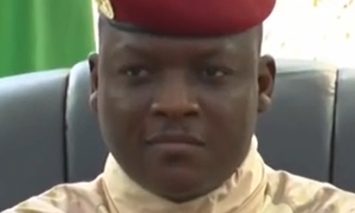African generals have once again left barracks and are occupying state office in a number of African countries. Africans, it seems, have learnt nothing from their experience of past military dictatorships.
Military government
Military governments are entrenching themselves. In May, the current military dictator of Burkina Faso Captain Ibrahim Traoré announced a five-year extension to his term in office. He said his aims were to save his country from both jihadism and French influence.
The same month General Mahamat Déby won a Presidential election in Chad, enabling his military rule to continue.
In Niger General Abdourahamane Tchiani, who led a successful coup in July 2023, says he will not stand down until France returns every penny it has stolen from his country.
And in Mali the military junta led by Colonel Assimi Goita cancelled elections due to be held in February and has suspended all political activities until further notice.
The Failure of Democracy
Democracy is intended to produce governments chosen by the people, and chosen freely, not as the result of blackmail or fears about security. It is supposed to bring justice, fairness, progress, peace and prosperity – both for individuals and for society as a whole. But military rule is merely rule by the strongest, imposed on the people whether they asked for it or not.
Most Africans grew up under democratic governments but, when asked, they will tell you that military government is better than democracy. This is because they have seen no benefits from the democracy which was supposed to bring them peace, progress and security.
Corruption has prevented wealth from tickling down to the masses, and countries celebrating five or six decades of independence still cannot provide their citizens with reliable supplies of water, food and energy.
Who is to blame for this? The political class. The system. Will things get better? No, not for another generation at least.
Let us consider why democracy did not put down strong roots in many African countries.
The political generation who grew up under colonialism, and who fought for independence, failed to uphold democratic norms when they returned from exile. They succumbed to nepotism, allowing their cronies to achieve influential positions rather than letting good technocrats take important roles. They relied on corrupt practices to fund their election campaigns and promoted their own supporters so that today’s governor who was yesterday’s senator became tomorrow’s vice-president.
Moreover, the better sort of African leaders never lasted long. They were buffeted by political instability, civil wars, and conspiracies, and they sometimes fell to the assassin’s bullet. They lacked the political skill to keep their countries free from interference – either by the global powers or by their own militaries. In the end, they proved unable to solidify democracy.
Finally, it was only too easy for politicians to call themselves “progressive” in order to gain support from western leaders and win elections. But then, once elected, they rejected everything progressives are supposed to stand for, even going so far as to pass anti-LGBT+ legislation and restrict freedom of religion. Then, if they chanced to lose an election as a “progressive” they simply joined a right-wing party. Conservatives did the same but in reverse.
If the problem is a lack of democracy, the political elite have all been culpable.


